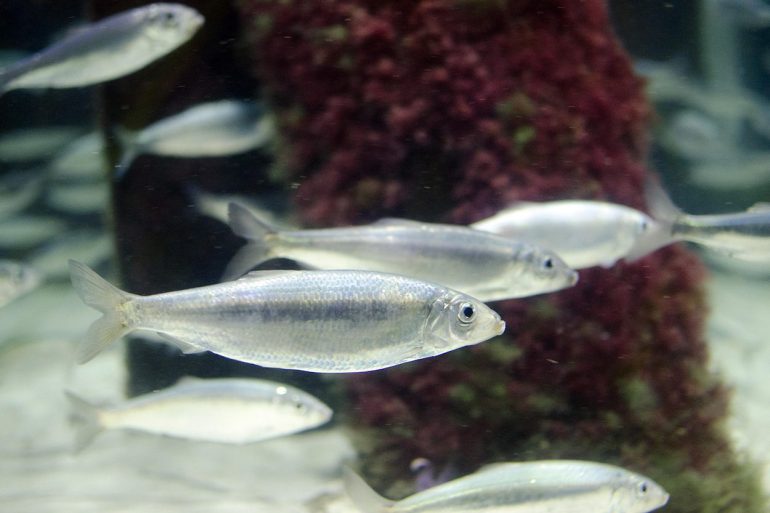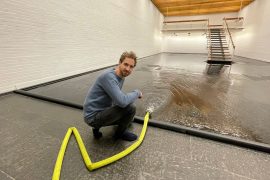Overfishing now threatens herring and cod stocks, and may be at a critical point in parts of the Baltic Sea. But it’s not just because of modern fishing practices: about 500 years ago, the combination of an unfavorable climate with excessive fishing caused a decline in the stocks of the then-dominant herring subspecies, as historical sources show.
More than a third of the world’s commercially exploited fish stocks are considered overfished or threatened by overfishing. In the western Baltic Sea, and thus off the German coast, cod stocks have already reached a critical point this summer, the excesses of which will hardly be reversible. And the western Baltic Sea also has such low stocks of herring that, according to experts, sustained fishing is neither attractive nor sustainable.
How Sustainable Was the Baltic Sea Fishing in the Past?
So far, this dramatic decline in fish stocks has mainly been the result of industrial fishing and its state-of-the-art fishing fleet. Combined with climate change, this unsustainable overfishing means populations can hardly recover. According to the general opinion, fisheries in the Baltic Sea are considered more sustainable in earlier times. An interdisciplinary team of biologists, fisheries economists and historians has now examined, for the first time, whether this was so. As part of his studies, he reconstructed the development of the herring fishery in the Baltic Sea between 1200 and 1650.
For their analysis, the scientists relied on information from historical sources that provided indirect evidence of fish stocks at the time. They analyzed medieval literature to collect data such as the production of salt used to preserve salted herring. The amount of salt production gave the researchers important clues as to the catch at that time. Historical customs books of the Hanseatic city of Lübeck and other towns also provided valuable information on the fishing and fishing activities of the time.
Population collapsed about 500 years ago
An evaluation of historical sources revealed surprising things: about 500 years ago, the interaction of negative environmental impacts and overfishing led to the collapse of sound fisheries in the western Baltic Sea. The then most important fishery for autumn-producing herring collapsed in the 1580s in a very short time – and has yet to fully recover from it. “Basically, our historical data on autumn-spawning herring shows the same pattern as we find in cod today and more recently for spring-spawning herring in the western Baltic Sea,” said Rudiger Voss, a fisheries economist at Kiel University. Explains, iDiv and the University of Leipzig.
According to the results, the stock collapsed due to a combination of climate change and overfishing. In the middle of the 16th century, the average temperature in the Baltic Sea dropped by a total of 0.85 °C. As a result, the productivity of the herring stock decreased as the fry did not survive. At the same time, however, herring continued to be intensively cultivated: the catching capacity of fishing fleets in the early modern period was no less than that of today’s fisheries. For example, archaeological finds suggest that about 45,000 fishermen may have lived in Falsterbo in southern Sweden alone.
tipping point as now
As a result of this unstable fisheries and unfavorable climate, the autumn-spawning herring, the herring subspecies that dominated the western Baltic by that time, almost completely disappeared, and with it the herring fishery. “Excessive fishing causes climate change and kills fish populations and associated fisheries. Consistent with cod stocks today, a tipping point has been passed – unfortunately towards an unwanted, stagnant state with low herring productivity, Voss explains. After the fall-spawning herring disappeared, it was replaced by another herring subspecies that spawn in the spring. This spring-spawning herring is still responsible for herring catches in the Baltic Sea today.
But should herring continue to be heavily fished under current conditions, it should face the same fate as its autumn cousin from centuries ago. “Now, in times of warmer climates, it will be important not only to know about the tipping points and ecological preferences of the fish species caught, but also to take them into account,” says Jorn Schmidt, a fisheries biologist at Kiel University. “The aim should be to establish an ecosystem-based fisheries management system that takes into account changes in the environment. The clock is ticking for this. We should not waste any time.”
Sources: Christian-Albrechts-Universitat zoo Kiel; Technical Articles: Hanseatic History Sheet Band 139/2021

Web guru. Amateur thinker. Unapologetic problem solver. Zombie expert. Hipster-friendly travel geek. Social mediaholic.





